“My father was an entrepreneur in Cleveland. He was a union drywall taper contractor, so I grew up with a sanding pole in my hands. Sometimes when you’re the son of the boss, somebody holds your hand and shoves a silver spoon somewhere, but that’s not really how it worked in my world. It was like, ‘Here’s a sanding pole. Make it look better than it does.’
One summer, I was 16, I was like, ‘You know what, dad? I just want to let you know, at the end of the summer, I averaged 36 hours a week of sanding drywall, OK? Am I going to learn how to do this?’ He goes, ‘You are learning.’ It was a very Miyagi-style way of learning. Every summer through college, I would come home and do that.
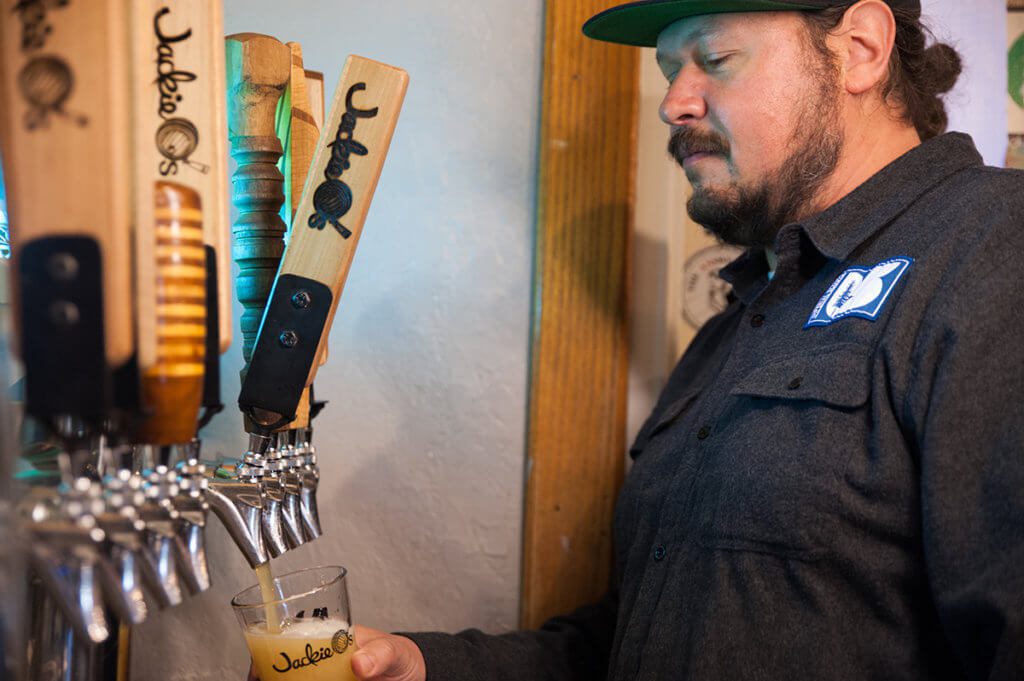
Mom had a bit of an accent, and everything was just a little bit different at home. And you don’t realize that when you’re growing up, you don’t see that, but our house was a very welcoming place. If somebody had problems or needed a safe place or a place to get away or they just needed a parent, that was our house. That was mom’s superpower, fostering that sense of home and safety and nurturing. Meanwhile, dad is out there running around, working his tail off to support the family.
It’s funny what you get from your parents, these different skill sets and traits. I’m pretty driven, as are all of us siblings. My brother climbed Mount Everest. I’ve just been driven to do more and sometimes to a fault. If I could go back in time, I would change some things — we would all change some things — but 15 years later, wow. I can’t believe we got here.
My mom’s name was Jackie Oestrike, and everything’s named after her.
She grew up in England and moved to Cleveland in 1967. There was always Newcastle Brown Ale in my fridge growing up. And, you know, I’m 15, 16 years old and, as a lot of Europeans do, I would share a beer with mom because she wanted to have a beer but didn’t want to hold one. So it wasn’t yellow lagers that were introduced to me in weird high school social scenes, it was Newcastle Brown Ale while sitting at home with mom.
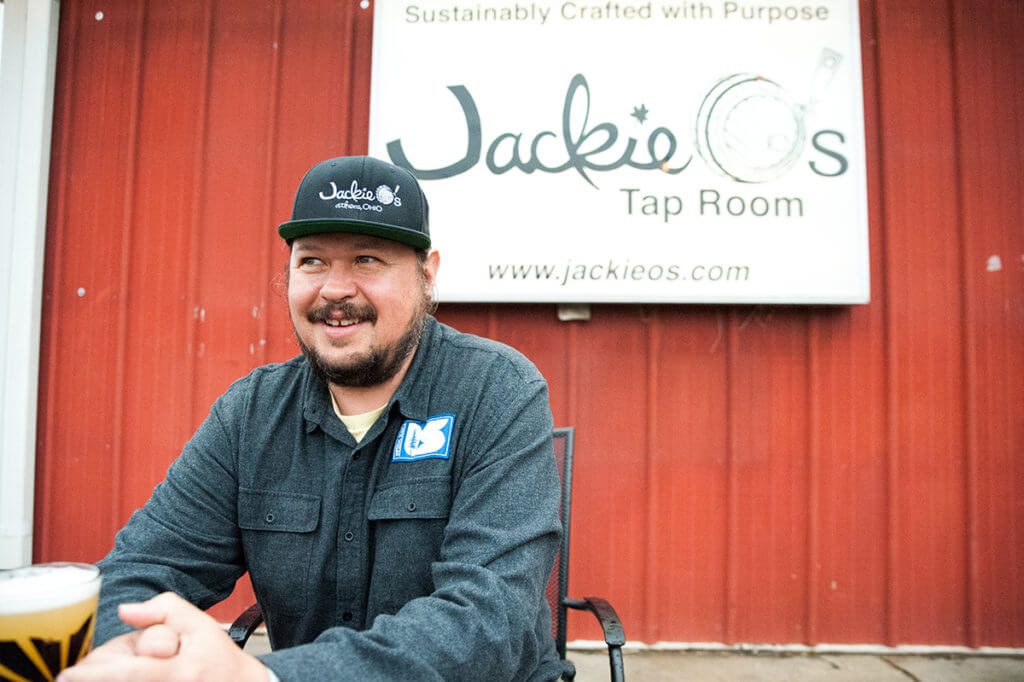
I taught English overseas in South Korea for almost three years in the early 2000s until my friend and I bought Bagel Street Deli, the place we worked as undergrads. At a certain point, that entrepreneurial spirit I grew up with — I watched dad run a business — kind of kicked in. So I moved back from Korea six months after we bought it.
Now, here we are, nine years later, with the production site and over 3,500 accounts in the state of Ohio. It’s been a crazy run.
So the Bagel Street thing went rockin’ right along, and I was also in grad school at the time for linguistics and wanted to buy a bar. It worked out that the bar was for sale, and it happened to have a brewery in it. Having a brewery within the building was awesome.
A great friend of mine had been a pretty avid homebrewer, and I had home-brewed with him and tried a bunch of his beers. He said, ‘Hey, you should buy O’Hooley’s.’ And, boom, boom, boom, next thing you know, I’ve got the keys to O’Hooley’s in the fastest business deal to date. It just kind of grew from there.
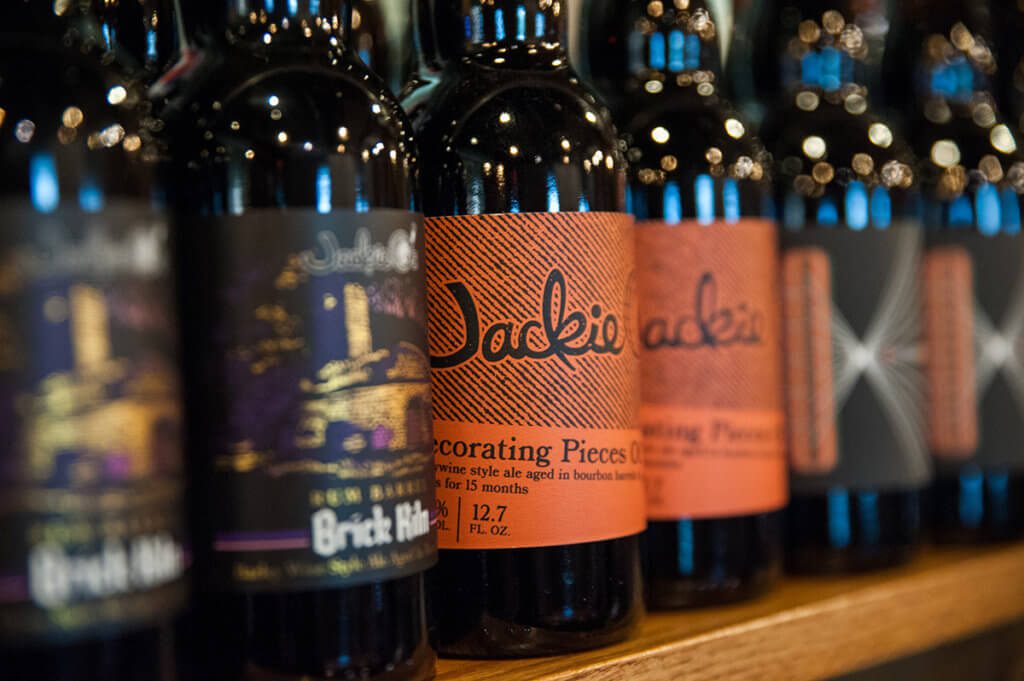
That was in late 2005. In 2009, we tripled our footprint. In 2013, we got the productive brewery right down the road. So from 2006 to 2013, you could only find our beer at the brewpub in our uptown location. There were two other places in Athens you could find our beer. Now, here we are, nine years later, with the production site and over 3,500 accounts in the state of Ohio. It’s been a crazy run.”
“If you support the people around you, it tends to come back tenfold. If we can buy it in Athens, or within 30 miles, or within the state of Ohio, or within the Midwest, or within the country, we do and in that order. That’s just the way it has to be.
But our product also needs to be consistent. Take for example Mystic Mama, it’s a West Coast-style IPA that we’ve been making since 2007. It’s our No. 1 product, it’s our flagship. If I want Mystic Mama to taste like Mystic Mama every single time, I have to use the same ingredients. So I’ve gotta use grain that I know I can source all year, hops that I know I can source all year, and, unfortunately, that’s not a local sort of thing. So we get our hops from a co-op in the Pacific Northwest and we get our grain from Wisconsin because that’s where I can get consistency closest to us.
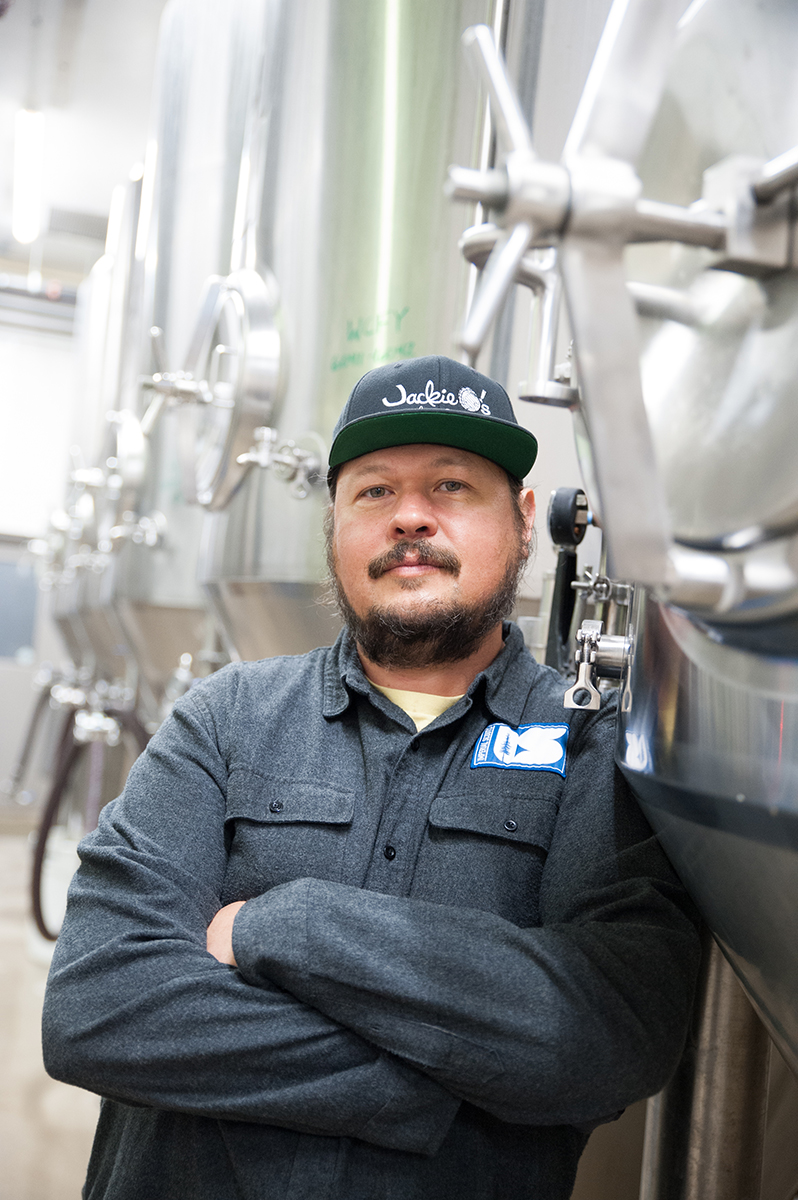
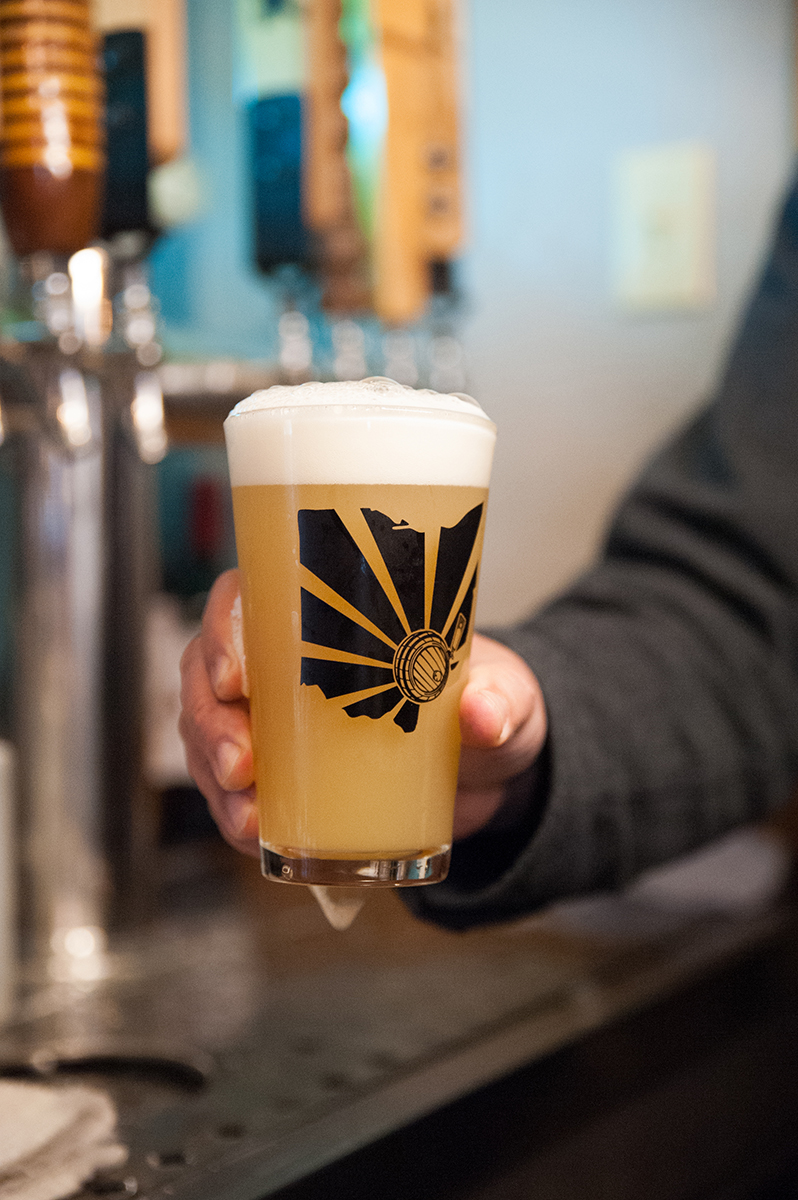
And I’m not trying to destroy the planet. We spent $175,000 on solar panels on the roof of the brewery. Tanks pay for themselves. Solar panels? They do kind of pay for themselves, but they’re helping us do what I believe is right, what we believe is right: using resources that are abundant and around us to help us make our products without taxing the Earth. I don’t want to tax the Earth. I want my kids to have a planet. And we’re not perfect, nobody’s perfect, but trying to do the things that we can in a way that makes sense is an ethos that we have.
One hundred percent of our product is made in Ohio and 96% of what we make is sold in Ohio, and there’s a carbon footprint reason for that. We could have easily launched out into a lot more states and had all the product disappear, but then you’re increasing your carbon footprint by sending beer everywhere.”
“Experimenting with sour beer was part of our constant quest to do something different and to learn and expand our skill sets — wanting to get out of the box.
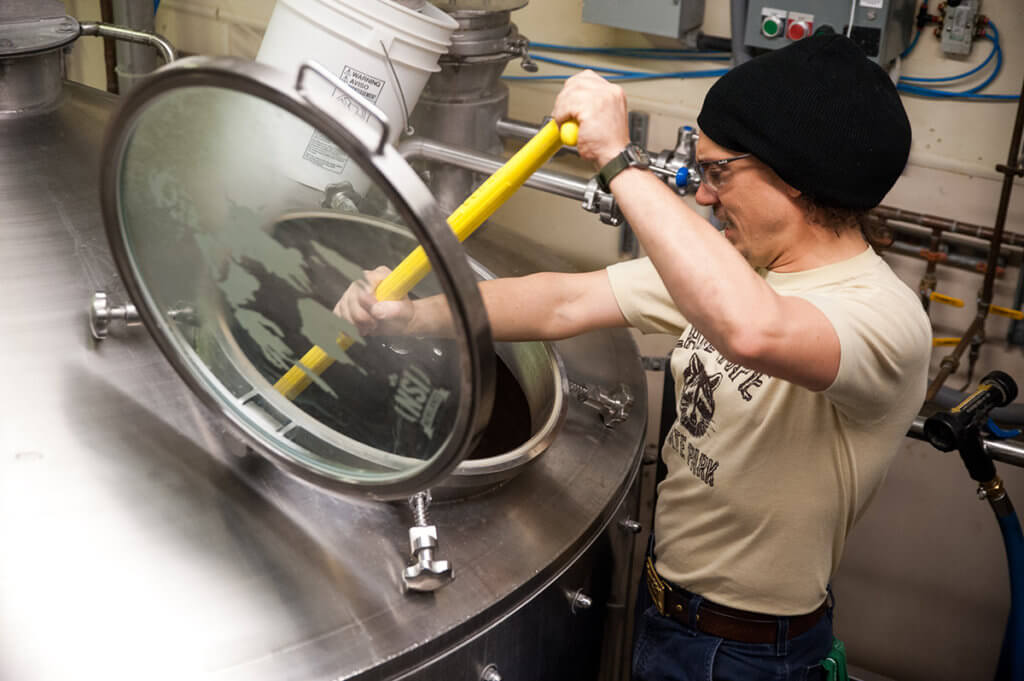
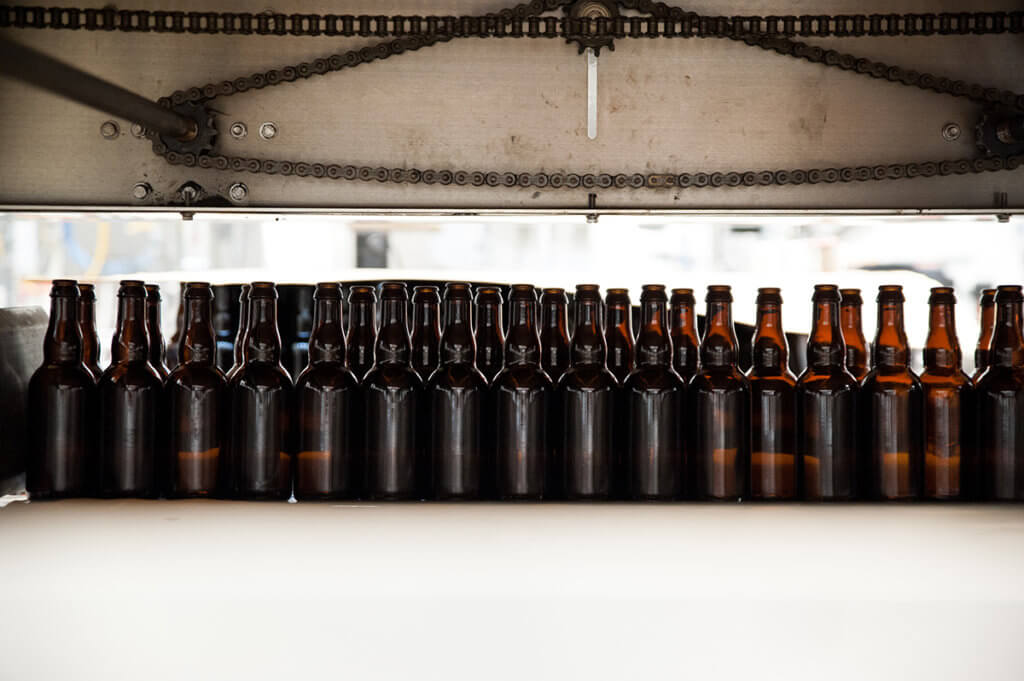
In 2007, 2008, there was a major hops shortage, so we were brewing all these big stouts, all these different styles that were malt heavy, malt-driven because we could get them, and so it lent itself to throwing beer into barrels. My head brewer at the time said he wanted to get barrels and mess around, and I never say ‘no,’ so we just went for it. Let’s try different styles and see what sticks.
We made a name for ourselves back in 2008 to 2010 releasing those products that we started putting into barrels during those years. We learned a whole bunch along the way and our processes have changed a ton since that time. Today, we have a dedicated sour room, but then we also have 1,000 spirit barrels full of stout and barley wine.”
“Our biggest market is in Columbus. We purchased a building, an existing brewery, in Columbus in October of 2020, and we worked through how to turn that brewery back on. We spent time doing maintenance and fixing some things that needed some serious love. We’ve built a beautiful, world-class patio there.
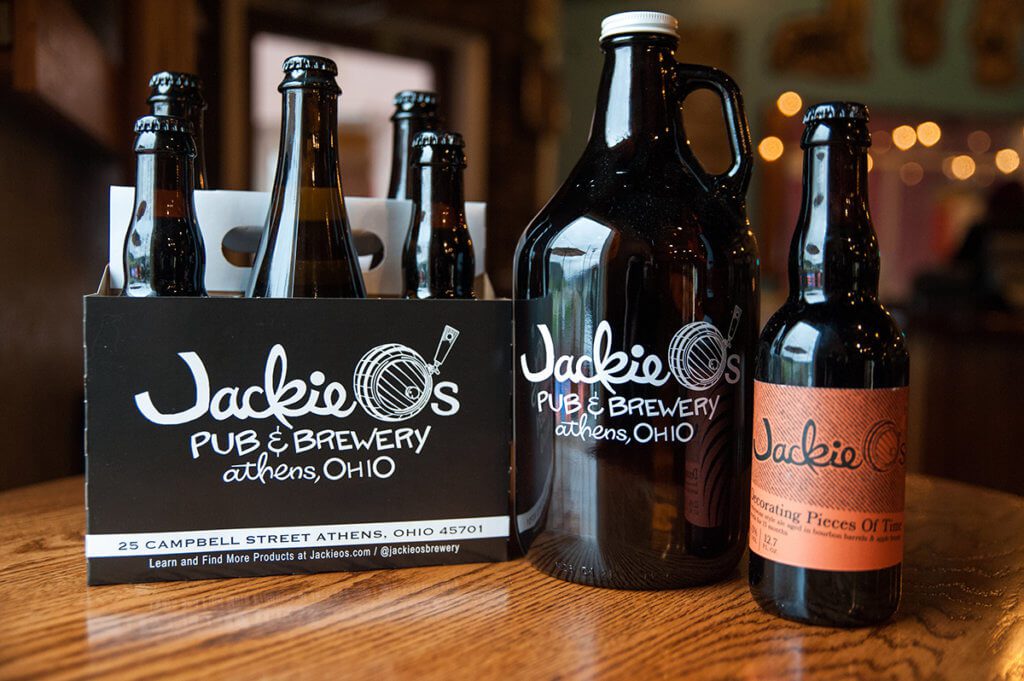
I love Athens. I’m not leaving Athens, but we are a little town here. We’re the Ohio University Bobcats, and there are more Bobcat alumni living in the Columbus area than there are people in Athens, including students, so we have a very big following there. When people think about Ohio University a lot of them think about Jackie O’s, so we want to give them a place to hang out and remember those college years.
The locavore movement that we’re seeing across the country today has been strong and vibrant in Southeast Ohio for 50 years. The reason I’m in Athens is because of that feeling.
Athens is also a very impoverished area in one of the poorest counties in Ohio, and I don’t want these jobs to go away. In fact, Columbus is going to strengthen the quality of the jobs and the packages that I can offer here, so it’s pretty awesome. And I think we’ll end up getting more people coming to Athens as a result of that expansion than we do now.
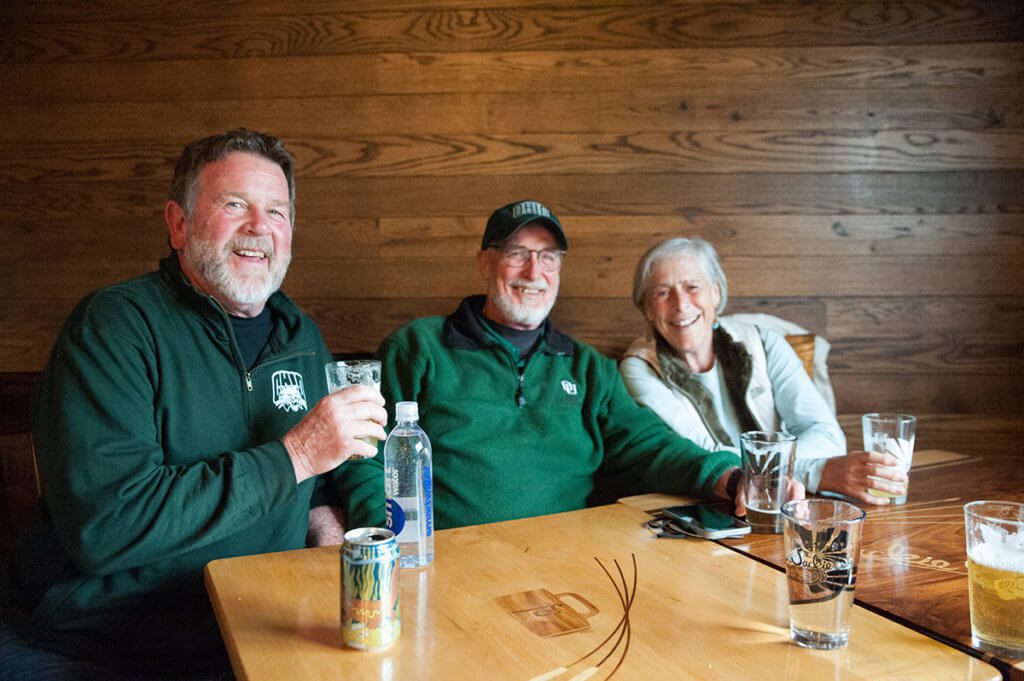
The locavore movement that we’re seeing across the country today has been strong and vibrant in Southeast Ohio for 50 years. The reason I’m in Athens is because of that feeling. The reason local businesses are going to stick around here is that while we never boomed, we never busted, and we’ve always had a sense of community and community supporting our businesses.”
“There was a tiny restaurant in the original spot, so we had pizzas, fish and chips, and a locally sourced burger almost from day one. Our patio was open, you ordered from the bartender, and we served by barking out your name, you know, watch-for-the-food-in-the-window sort of thing. It was a pretty small facility. The building had been a bar since the 1880s, except for during prohibition. Then in 2009, we got the room next door. The kitchen is like 40 times the size, it’s a real kitchen, so we expanded the brewery by more than double.
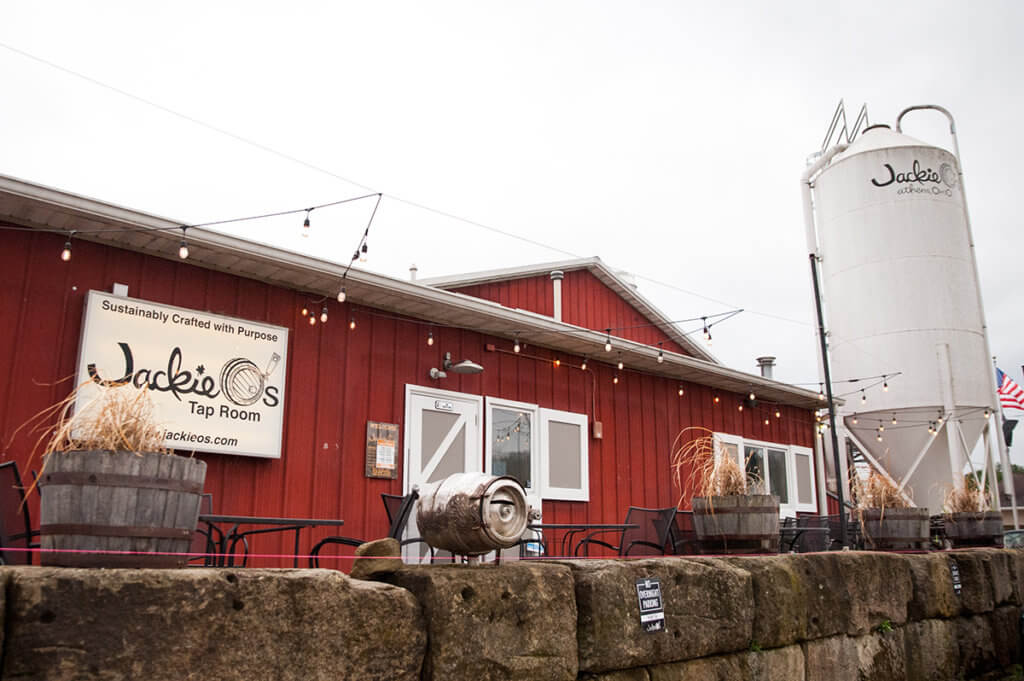
Several years later, there was a fire. It was terrible. It just took the wind out of our sails. It was two to three years later before the restaurant was fully opened again. It’s just one of those things you’re not supposed to have to deal with. It started a couple of buildings away. All the buildings are really old, they don’t have fire protection, and there weren’t sprinklers. So the fire got up in the attic, it would just bounce to the next building, then work its way down, then bounce to the attic, and work its way down. The only reason it stopped before hitting our original building was that our restaurant area was below the building next door.
The small side, the original side, never really closed. The taproom, which is where the production brewery is, was open and functioning, so we had other things to do and focus on. We bought a little food cart. We tried to recoup whatever we could recoup and sell as much beer as we could.
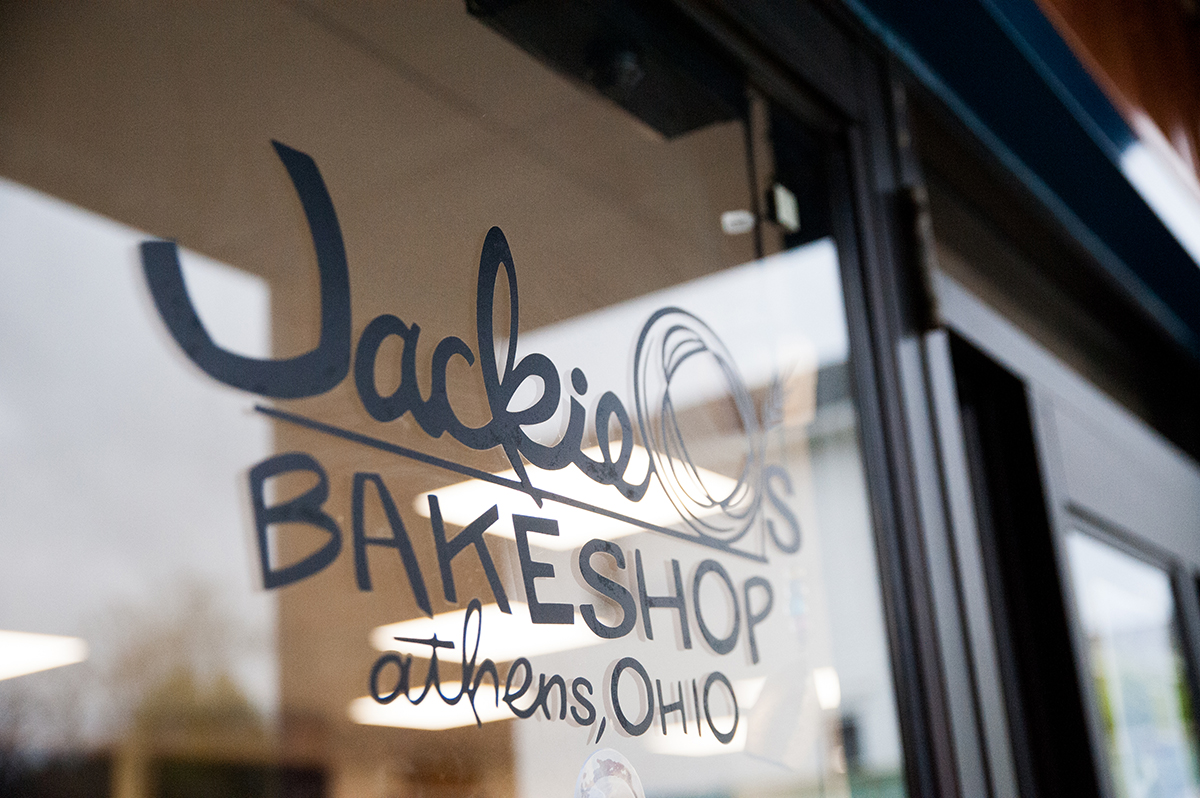
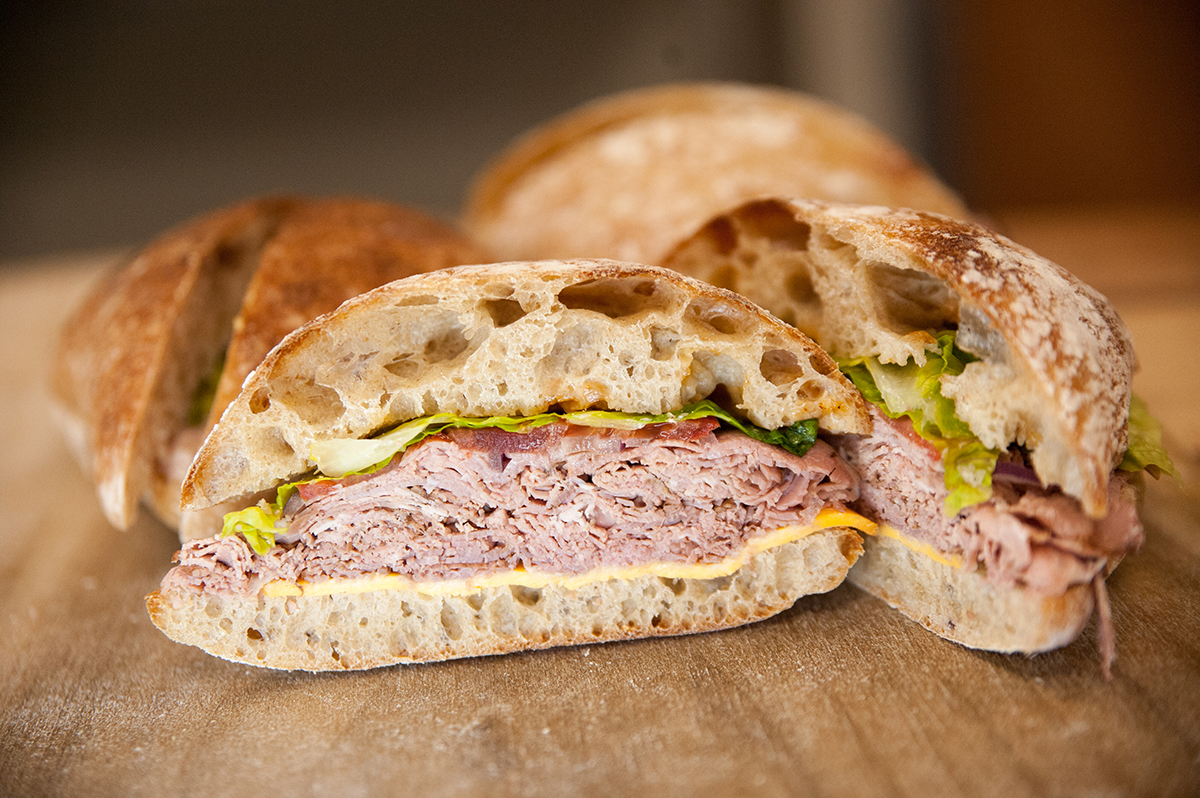
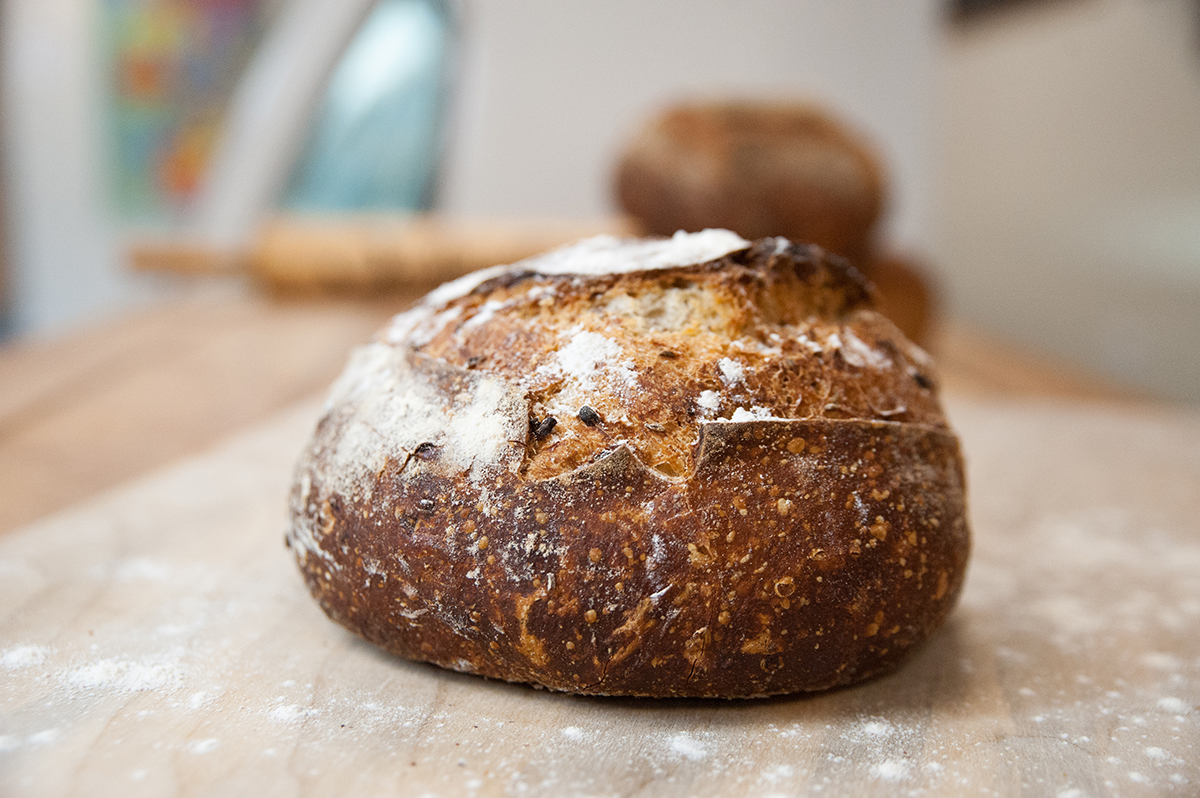
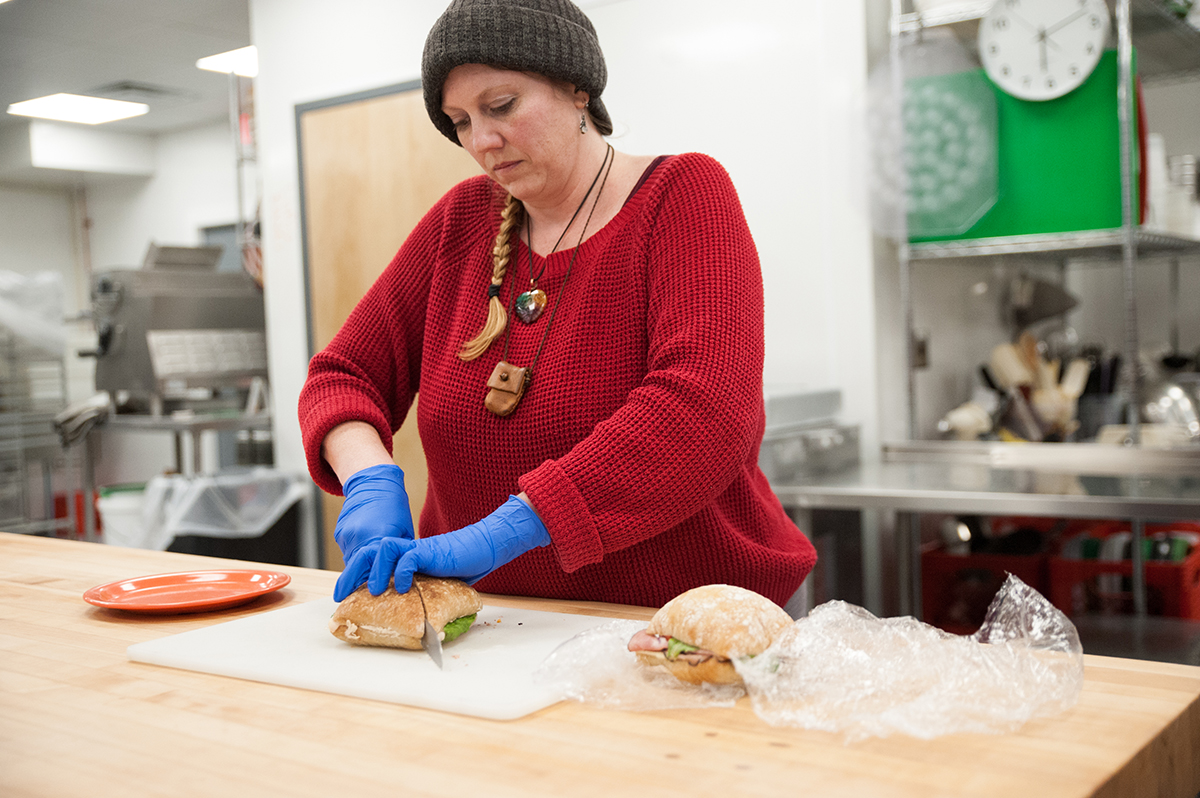
I bought Barrel Ridge Farms in 2010. We bought some beehives, we put a bunch of asparagus in, a bunch of raspberries, things that come back every year. And it’s been a slow growth out there. We have four or five high tunnels now and there’s a nice big barn with an Airbnb in it and a couple of ponds.
We grow a lot of vegetables and a lot of fruit for the restaurant, the bakery, and the breweries. When we get 20 or 30 pounds of fruit, the barrels in that sour room in the basement are the perfect place for it.
Farming is difficult, but it’s really beautiful out there. There was a wedding out there two days ago. I hope to have an event center out there in the coming years.”
– Art Oestrike, Jackie O’s Pub & Brewery
Athens, Athens County
#WeAreOhioSE



